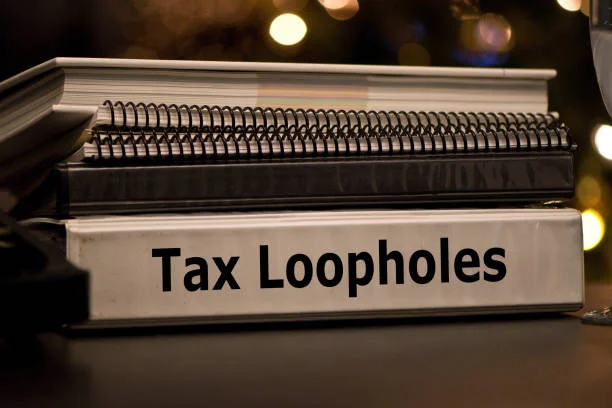The Business Activity Statement represents one of the most critical compliance obligations for Australian businesses, yet it remains one of the most commonly misunderstood and mismanaged aspects of small business administration. BAS lodgement requires businesses registered for GST to report their tax obligations to the Australian Taxation Office, including goods and services tax, pay-as-you-go withholding, pay-as-you-go installments, and other tax obligations depending on business structure and activities. According to ATO statistics, approximately 15% of small businesses lodge their BAS late each quarter, incurring penalties that average $420 per instance, while errors in BAS reporting cost small businesses an estimated $280 million annually in overpaid taxes, missed credits, and compliance costs. Understanding the lodgement process, deadlines, and reporting requirements is essential for maintaining good standing with the ATO and optimizing your tax position.
What Actually Goes on Your BAS
The BAS isn’t just one form reporting one thing—it’s actually a combined report covering multiple tax obligations, which is why it can get confusing pretty quickly.
The main component is GST, or goods and services tax. If you’re registered for GST, you need to report all the GST you’ve collected from customers and claim back all the GST you’ve paid on business purchases. The difference is what you either owe the ATO or what they owe you. This sounds straightforward, but it gets complicated fast when you’re dealing with things like mixed supplies, GST-free items, or input-taxed sales.
Then there’s PAYG withholding if you have employees. This is the tax you’ve withheld from employee wages throughout the quarter, and you need to report and pay this amount to the ATO. Getting this wrong can result in serious penalties because you’re dealing with money you’ve already taken from your employees’ pay.
PAYG installments are different—these are prepayments toward your expected income tax for the year. Not all businesses need to report these on their BAS, but if you do, the ATO either calculates an amount for you based on last year’s tax return, or you can vary it if you think your income will be significantly different this year.
Depending on your business, you might also report things like luxury car tax, wine equalization tax, or fuel tax credits. Each of these has its own rules and calculations, which is why many small business owners end up getting professional help with their BAS.
Discover more insights that perfectly connect with your current read — visit now!
Understanding the Lodgement Deadlines
BAS lodgement frequency depends on your business turnover and structure. Most small businesses lodge quarterly, though some lodge monthly or annually.
If your GST turnover is less than $20 million, you typically lodge quarterly. The quarters end on September 30, December 31, March 31, and June 30. Your BAS is due 28 days after the end of each quarter if you’re lodging yourself, or by the 25th of the month following the quarter if you’re paying electronically.
However—and this is important—if you use a registered tax agent or BAS agent to lodge for you, you usually get extra time. The ATO provides extended lodgement dates for agent-lodged BAS, which can give you an additional month or more depending on the quarter. For example, the September quarter BAS that’s normally due October 28 might not be due until December 7 if lodged through an agent.
Monthly lodgers typically have a turnover exceeding $20 million, and their BAS is due on the 21st day of the following month. Annual lodgers are usually small businesses with a turnover under $75,000 who report GST annually with their tax return.
The penalties for late lodgement are no joke. The ATO charges a failure-to-lodge penalty of one penalty unit per period or part period that your BAS is overdue, currently $313 per penalty unit. So if you’re one day late, that’s $313. If you’re two months late, that could be $626 or more depending on how the ATO calculates it.
According to ATO data from 2023, they issued approximately 180,000 failure-to-lodge penalties for BAS, totaling over $56 million in penalty revenue. Most of these could have been avoided with better record-keeping and deadline management.
Getting Your Records Right
The accuracy of your BAS depends entirely on the quality of your record-keeping throughout the quarter. You can’t just throw together your BAS at the last minute—well, you can, but it’ll probably be wrong.
You need to track every transaction that affects your BAS. That means every sale you make, every expense you incur, every employee payment, everything. And it’s not just about recording the amounts—you need to classify transactions correctly for GST purposes.
Some sales are GST-free, like basic food items or exports. Some are input-taxed, like financial services or residential rent. Some include GST. If you miscategorize transactions, your GST calculation will be wrong, and you’ll either underpay (which the ATO will eventually catch and penalize you for) or overpay (which means you’re giving the government money you don’t owe).
The same goes for purchases. Not everything you buy for your business is eligible for GST credits. Personal expenses aren’t claimable. Purchases related to making input-taxed sales generally aren’t claimable. Entertainment expenses have special rules. If you claim GST credits on things you’re not entitled to, that’s a problem.
Software helps a lot here. Accounting software like Xero, MYOB, or QuickBooks can categorize transactions, track GST, and even prepare your BAS automatically. But the software is only as good as the data you put in. Garbage in, garbage out, as they say.
A study by the Australian Small Business and Family Enterprise Ombudsman found that businesses using cloud accounting software had 60% fewer BAS errors compared to those using spreadsheets or manual systems. That’s a significant difference that can save you from amendments, audits, and penalties.
Common Mistakes That Cost Money
I’ve seen some recurring BAS mistakes that seem to happen over and over, and they’re usually expensive.
One of the biggest is claiming GST on things you’re not entitled to. This includes claiming GST when the supplier isn’t registered for GST, claiming on tax invoices that don’t meet ATO requirements, or claiming on personal expenses. The ATO’s data matching is sophisticated now—they can see what GST other businesses are remitting and cross-reference it with what you’re claiming.
Another common mistake is getting the timing wrong on GST. For most small businesses, you report GST on a cash basis, which means you report GST when you actually receive payment, not when you issue the invoice. But some businesses are required to use accrual accounting, where you report GST when the sale is made. Getting this wrong throws off your entire BAS.
PAYG withholding errors are particularly serious because they involve your employees’ tax. If you withhold the wrong amount, report it incorrectly, or fail to pay it on time, you’re looking at significant penalties and interest charges. The ATO considers this money held in trust for employees, so they take non-compliance very seriously.
Then there’s the issue of not reconciling your BAS with your accounting records. Your BAS figures should match your accounting software or books exactly. If they don’t, something’s wrong somewhere, and you need to figure out what before you lodge. I’ve seen businesses lodge incorrect BAS statements because they prepared them manually without checking against their accounting system.
When to Get Professional Help
There’s no shame in getting help with your BAS. In fact, for many small businesses, it’s the smart financial decision.
A registered BAS agent can prepare and lodge your BAS for you. They’re trained specifically in BAS preparation and stay current with all the rule changes and ATO requirements. Using a BAS agent also gives you those extended lodgement deadlines I mentioned earlier, which provides valuable extra time to get your records in order.
The cost of BAS agent services typically ranges from $80 to $300 per quarter depending on the complexity of your business and the volume of transactions. That might sound like a lot, but consider what you’re getting: accurate preparation, lodgement on time, peace of mind, and someone to deal with the ATO if questions arise.
For more complex situations—multiple entities, large transaction volumes, unusual GST scenarios—you might want a qualified accountant rather than just a BAS agent. Accountants can provide strategic advice about structuring transactions to optimize your GST position, not just prepare the forms.
Research shows that businesses using professional BAS preparation services have significantly lower audit rates and penalty assessments compared to those preparing their own. The Australian Taxation Office data indicates that agent-prepared BAS statements have an error rate of approximately 3%, compared to 12% for self-prepared statements.
Unlock more stories, tips, and expert insights waiting just a click away — explore now!






